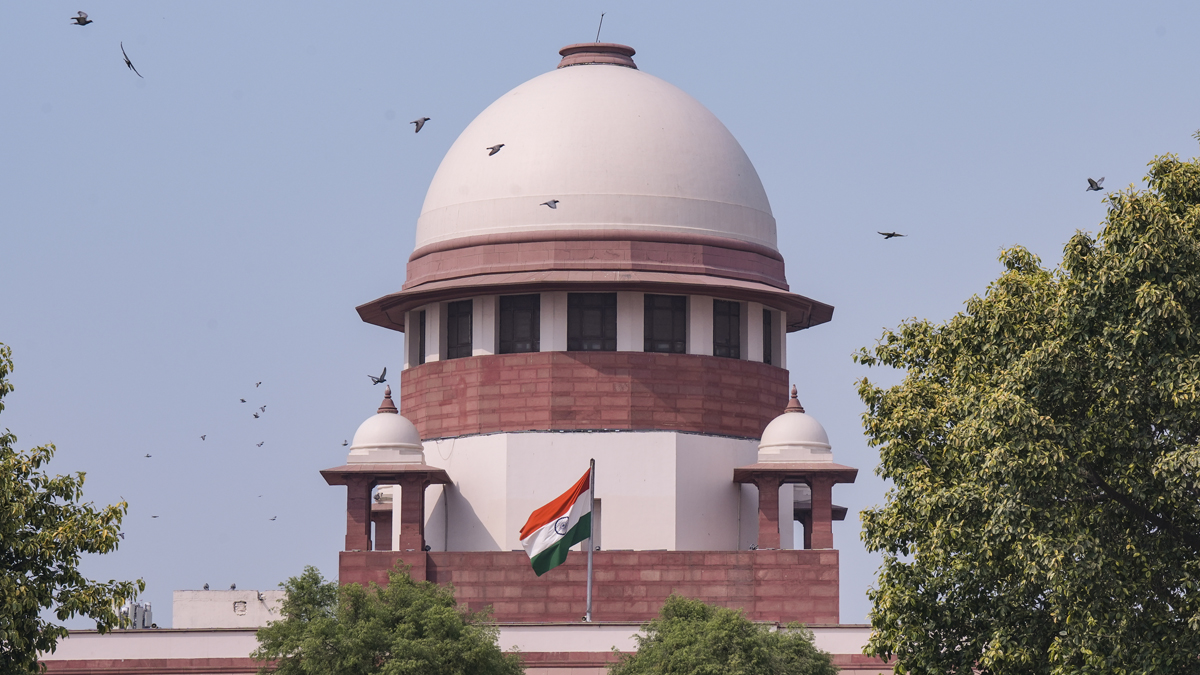Secretly recorded calls can be used in divorce cases, rules Supreme Court
 New Delhi: View of the Supreme Court of India, in New Delhi, Wednesday, April 16, 2025. The apex court has begun hearing on a batch of petitions challenging the constitutional validity of the Waqf (Amendment) Act, 2025. (PTI Photo/Manvender Vashist Lav)(PTI04_16_2025_RPT222B)
New Delhi: View of the Supreme Court of India, in New Delhi, Wednesday, April 16, 2025. The apex court has begun hearing on a batch of petitions challenging the constitutional validity of the Waqf (Amendment) Act, 2025. (PTI Photo/Manvender Vashist Lav)(PTI04_16_2025_RPT222B)
In an important ruling that touches the delicate balance between marital privacy and the right to a fair trial, the Supreme Court, on Monday, held that a husband or wife can rely on secretly recorded phone conversations with their spouse as evidence in matrimonial disputes, including divorce cases.
The verdict, delivered by a bench of Justices B.V. Nagarathna and Satish Chandra Sharma, has overturned a 2021 Punjab and Haryana High Court order which had blocked a husband from using a CD or memory card containing secretly recorded calls with his estranged wife to support his plea for divorce.
In the present case, the husband, who filed for divorce back in 2017, submitted a CD with telephonic conversations he claimed would prove his allegations against his wife. The Bathinda family court had allowed him to produce the CD, so long as its authenticity could be verified. But the High Court later held that this amounted to a clear-cut infringement of the wife’s privacy and struck the evidence down.
The top court turned to Section 122 of the Indian Evidence Act, which generally bars one spouse from disclosing marital communications without the other’s consent and said, “We do not think there is any breach of privacy in this case. In fact, Section 122 of Evidence Act does not recognise any such right. On the other hand, it carves out an exception to right to privacy between spouses and therefore cannot be applied horizontally at all. It does not touch upon the aspect of right to privacy as envisaged under Article 21 of the Constitution let alone invade upon such right. It does recognise right to a fair trial, right to produce relevant evidence, and right to prove one's case against the spouse so as to avail relief sought.”
The judges said this right must be weighed alongside the fundamental right to a fair trial under Article 21 of the Constitution. They even referred to the landmark 2017 K.S. Puttaswamy judgment that declared privacy a fundamental right, but pointed out that such rights cannot be stretched to block valid evidence in a courtroom battle between spouses.
“Snooping is not the result of pending proceedings but rather a symptom of a broken-down marriage,” the court noted pointedly, adding that if a relationship has come to the point of secret recordings, the marriage is already fractured beyond repair.
The Supreme Court ultimately restored the Bathinda family court’s order from 2020, which means the husband can use the recordings, provided they pass tests of authenticity under law.
The ruling has far-reaching implications for how modern technology and evolving ideas of privacy intersect with traditional marital bonds in India.
Supreme Court’s ruling is likely to cast a long shadow on how matrimonial disputes are fought in Indian courts, especially as technology becomes an inseparable part of everyday life and increasingly, a tool in bitter marital battles.
India